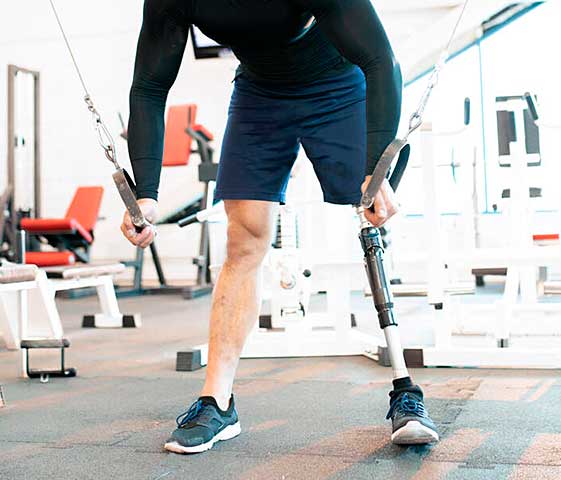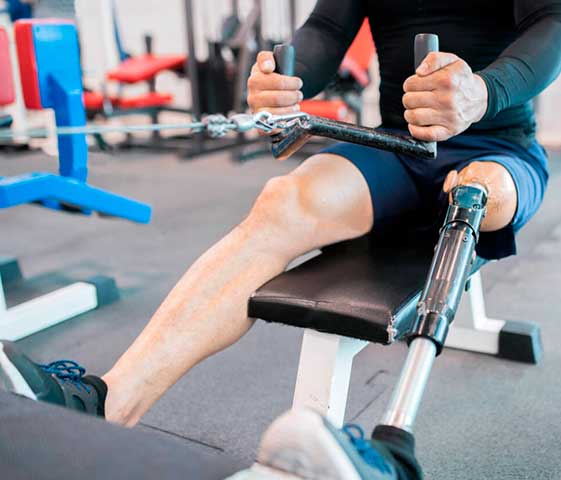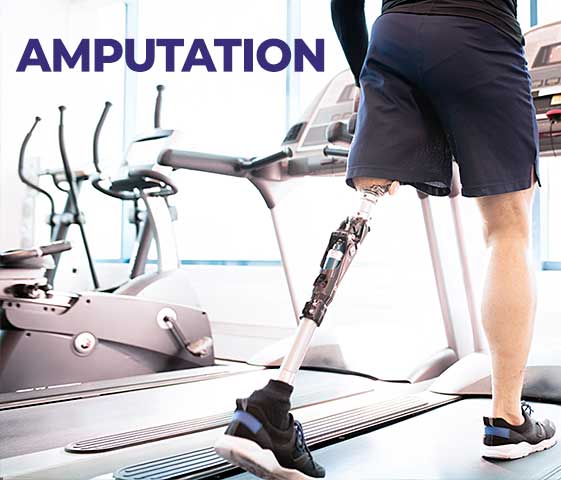Amputation recovery physiotherapy plays a crucial role in helping individuals adapt to life after limb loss and regain as much function and independence as possible. The specific approach to physiotherapy will depend on the level and type of amputation, the individual’s overall health, and their goals for rehabilitation.

If you are already using a prosthesis, physiotherapy helps a lot in recovery and optimization of mobility. But most importantly, to help you recover and get back to normal life as soon as possible.
If you’ve recently had an amputation or are navigating life with your prosthesis, at Revolve Physiotherapy in Milton, we are a motivated multidisciplinary team that will certainly motivate you and introduce you to new ways to maintain your mobility to the fullest.
Here are some general aspects of amputation recovery physiotherapy:
Postoperative Care: Immediately after the surgery, physiotherapy often focuses on managing pain, preventing complications like swelling and infection, and promoting early mobility.
Mobility Training: Learning to use a prosthetic limb or adapting to life with limb loss requires specific mobility training. This may involve practicing walking with assistive devices, such as crutches or a walker, and gradually transitioning to the use of a prosthetic limb.
Strength and Endurance Exercises: Physiotherapy aims to improve strength and endurance in the remaining limbs to compensate for the loss. This may involve resistance training, cardiovascular exercises, and functional activities.
Balance and Coordination Training: Loss of a limb can affect balance and coordination. Physiotherapists work on exercises to enhance these skills, reducing the risk of falls and improving overall mobility.
Pain Management: Individuals may experience phantom limb pain or residual limb pain. Physiotherapy techniques, such as massage, stretching, and desensitization exercises, can be employed to manage pain.
Prosthetic Training: For those using prosthetic limbs, physiotherapists assist in fitting and adjusting the prosthetic, as well as training individuals to use it effectively in various activities.
Adaptive Strategies: Physiotherapists help individuals develop adaptive strategies for daily activities, such as dressing, grooming, and household tasks, to enhance independence.
Long-Term Maintenance: As individuals adapt to their new abilities, physiotherapy may continue to focus on maintaining mobility. Also, preventing secondary complications, and addressing any ongoing challenges.
Additionally, physiotherapy can help in significantly speeding up your recovery time after an amputation. Your new prosthetic device will assist in your recovery, and your physiotherapists will put together a plan for continuous improvement.
It’s important to note that the rehabilitation process is highly individualized. Physiotherapy programs are tailored to each person’s specific needs and goals. The involvement of a multidisciplinary team, including physiotherapists, occupational therapists, prosthetists, and psychologists, is often essential for comprehensive amputation recovery.

Amputation Recovery Physiotherapy in Milton. Talk to our physiotherapists. Click the button below to book an appointment or give us a call – 905 864.8181
